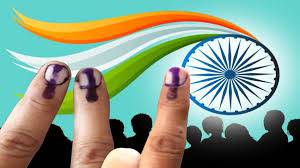Though social media can be an extremely powerful and efficient tool for activism, the problem begins when the intention behind reposting hard-hitting images or catchy woke quotes is entirely self-serving. This undermines the urgency of the situation they are posting about and reduces social media activism to a mere trend rather than a societal responsibility.
It would be unfair to say that this is true for all social media activism. We cannot forget movements like the UN #HeForShe that aimed to tackle gender inequality, the 2014 #ALSIceBucketChallenge, to raise money and awareness for the ALS association, or the 2017 #WomensMarch that united women all across the world and inspired them to challenge the status quo. These are just a few of the many movements that started out on social media and used the power of the platform to begin conversations in the real world.
For young activists, social media serves as a promising instrument, allowing them to bypass regular media coverage and conventionally spotlight-ignored narratives. Despite its benefits, the extensive range of communication in social media has caused some rather divisive opinions to be formed. This is where it becomes easy to fall victim to problematic behaviours like virtue signalling, moral grandstanding, or confirmation bias.
Virtue signalling is the practice of publicly expressing opinions intended to demonstrate one's good character or the moral correctness of one's position on a particular issue. It implies they don't truly believe in the cause they support, but do so, in an attempt to look good in the eyes of others. Social media has made virtue-signalling easy because of the minimal amount of effort required to post about a trending issue, that one may not even genuinely care about.
Moral grandstanding, according to Brandon Warmke, is the use of moral talk for self-promotion. Moral grandstanders would like for everyone to believe that they care about issues far more than others do, simply because they are better than everyone else.
Confirmation bias is the tendency to search for favour and recall information in a way that confirms or supports one's prior beliefs or values. When we separate ourselves from those who think differently from us, we begin to lose sight of how other people may think. When we only surround ourselves with those who conform to our idea of morality, it becomes very easy to villainize our opponents- especially when we have the comfort of doing so from behind our screens.
The debate over whether or not, online activism is helpful to our culture will go on for as long as we continue to show genuine concern for global issues. This is because the power of social media lies not in the platform’s ability to deliver, but in our ability as users to spread important information far and wide. That being said, it is up to us as responsible global citizens to ensure that we hold ourselves accountable and focus on the issue at hand rather than the user who posted about it.





